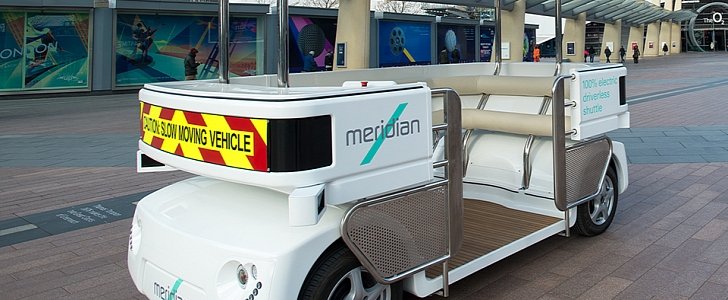A new study regarding public interest in self-driving cars has attracted our attention.
This time, a study made at the request of AXA Insurance shows that one-third of British drivers questioned would like to buy a self-driving car in the future. It is unclear whether they would buy one today, but the question was not asked that way because there are no driverless vehicles available on sale.
The result partly contradicts a previous survey, which was conducted for Smart Witness, and revealed that half of British motorists oppose self-driving cars.
We say “partially contradicts” because the sample of respondents is different from one survey to the other, and that the piece we are referring to in this article talks solely about a third of drivers, which could still leave room for the “half,” if you will.
The same survey commissioned by AXA revealed that two-thirds of British drivers would feel comfortable to ride in cars that drove themselves. This statement can be deciphered in many ways, as we shall show.
First of all, it could mean that they have nothing against driverless cars, but they would not buy one for themselves. Secondly, it could mean a market for self-driving taxis, which would serve these drivers whenever needed. The third possibility is that they genuinely embrace the benefits of autonomous cars.
Among the improvements in day-to-day life that can be delivered by cars that drive themselves are fewer worries about traffic and commuting, not getting lost, and arriving with less fatigue. However, the same research has revealed that 10% of women that were questioned feel that they cannot trust autonomous cars, and they even claimed that they would “never get in one.”
Curiously, the 10% group that fears driverless cars believes that humans are safer than computers, even though errors made by drivers cause 90% of car accidents.
As David Williams, technical director at AXA Insurance, explained for Auto Express, lack of information regarding specific topics and a “healthy dose of skepticism” stokes people’s fear.
The result partly contradicts a previous survey, which was conducted for Smart Witness, and revealed that half of British motorists oppose self-driving cars.
We say “partially contradicts” because the sample of respondents is different from one survey to the other, and that the piece we are referring to in this article talks solely about a third of drivers, which could still leave room for the “half,” if you will.
The same survey commissioned by AXA revealed that two-thirds of British drivers would feel comfortable to ride in cars that drove themselves. This statement can be deciphered in many ways, as we shall show.
First of all, it could mean that they have nothing against driverless cars, but they would not buy one for themselves. Secondly, it could mean a market for self-driving taxis, which would serve these drivers whenever needed. The third possibility is that they genuinely embrace the benefits of autonomous cars.
Among the improvements in day-to-day life that can be delivered by cars that drive themselves are fewer worries about traffic and commuting, not getting lost, and arriving with less fatigue. However, the same research has revealed that 10% of women that were questioned feel that they cannot trust autonomous cars, and they even claimed that they would “never get in one.”
Curiously, the 10% group that fears driverless cars believes that humans are safer than computers, even though errors made by drivers cause 90% of car accidents.
As David Williams, technical director at AXA Insurance, explained for Auto Express, lack of information regarding specific topics and a “healthy dose of skepticism” stokes people’s fear.

